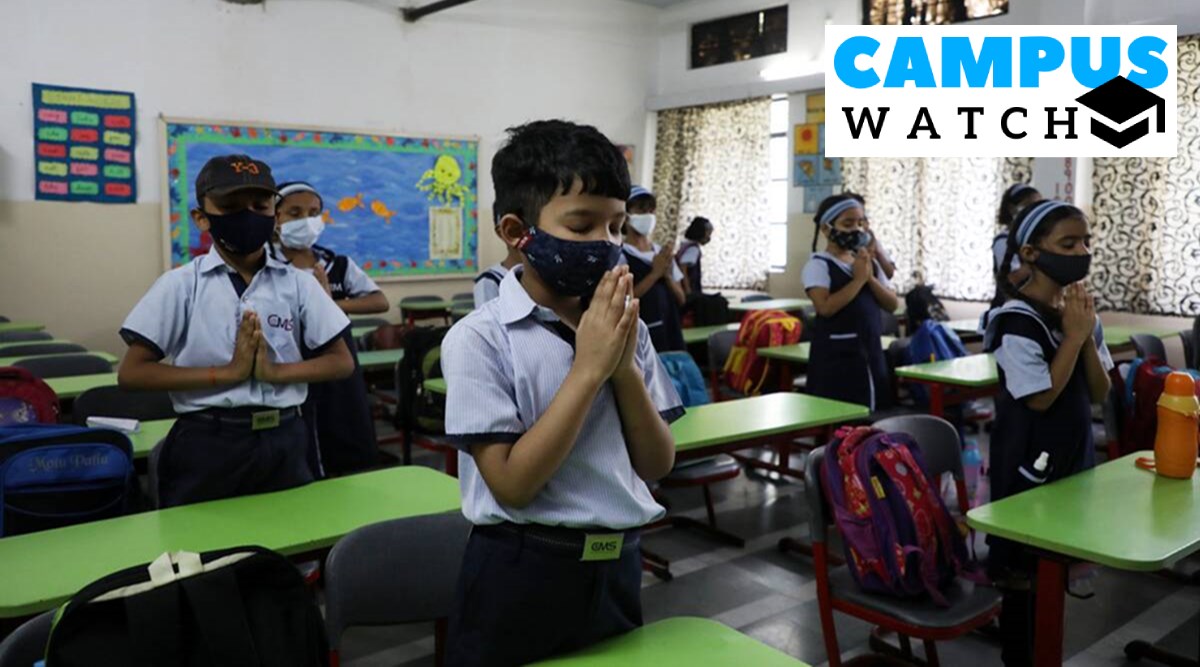 On top of the list of regulatory norms is the formation of the Parent-Teacher Association (PTA) and its executive committee.
On top of the list of regulatory norms is the formation of the Parent-Teacher Association (PTA) and its executive committee.With most schools in the city reopening for classes on Monday, enthusiasm is high among parents and students regarding the new academic year. However, even as parents and school managements ease into the new session, education experts advise following certain mandatory procedures to ensure a smooth academic year ahead.
On top of the list of regulatory norms is the formation of the Parent-Teacher Association (PTA) and its executive committee which, education experts said, is a vital link not just for smooth communication between schools and parents, but it also acts as the main body that asserts the rights of parents.
From approval of fees charged above the prescribed value under the law to important academic and non-academic decisions and discussing common issues and complaints of parents, the elected Executive Committee of the Parent-Teacher Association (E-PTA) has an important role to play in a school.
Dinkar Temkar, former director of primary education in the state, said according to provisions of the Maharashtra Educational Institutions (Regulation of Fee) Act 2011, every school has to form a PTA within thirty days of the commencement of school and every parent shall be its member. “Then willing parents are invited to form the E-PTA and in case there are more than two parents interested in representing one standard, then there shall be a draw of lottery for selecting the E-PTA member. There has to be at least one parent from one batch,” he said.
Best of Express Premium
Besides, the E-PTA has one teacher from each standard and a management representative. The school principal is the chairperson, a parent is elected as the vice-chairperson and a teacher is the secretary.
Schools are supposed to give wide publicity about the process of constitution of the executive committee in each class and have to display it on the school’s notice board and website, if such facility is available, within ten days of the formation of the PTA.
While it may come across as a regular exercise, education experts say both schools and parents often falter in this important process, often leading to clashes.
The E-PTA has both duties and rights and is a very important constituent. Under the amended law, a school can increase its fees by giving a year’s advance notice or increase it by 15% after a gap of two years. But for any other increase, it needs the approval of 76% of the parents or the elected E-PTA of the school.
“In most cases of school managements’ tiffs with parents that came to me, we saw that the E-PTA was not properly elected or schools had not formed the executive committee. Whether it is a government, private or minority institution, it is mandatory to form this body and it cannot consist of parents selected by the management, it has to be a lottery process. A lot of schools do not form the E-PTA as per law, because either they don’t know the law or do it deliberately. At that time, parents complain that they chose only certain people.
Usually, we see that no transparency is followed and other parents accuse the E-PTA of being management-friendly. Schools are required to follow procedures while conducting E-PTA meetings, which is not done and leads to clashes,” said Temkar.
Vikram Deshmukh, a legal consultant for several schools, said a lack of awareness with regard to the provisions of the law has often led to confrontations between school managements and the PTA. “The PTA never had a role in fee fixation, it was the E-PTA that has been given the right under the law. After the amendment in 2018, if a school gives a full one-year notice and notifies the fees for the next academic year, it can decide its own fee with no upper ceiling or it can table the proposal before the E-PTA about its decision to increase fees six months in advance. The main purpose of these bodies is to improve communication and resolve conflict, which is failing in a lot of cases,” he said.
- The Indian Express website has been rated GREEN for its credibility and trustworthiness by Newsguard, a global service that rates news sources for their journalistic standards.

